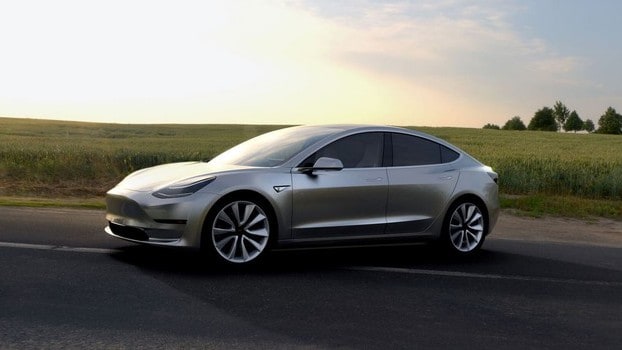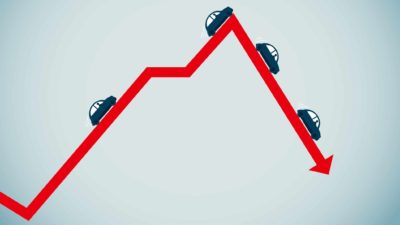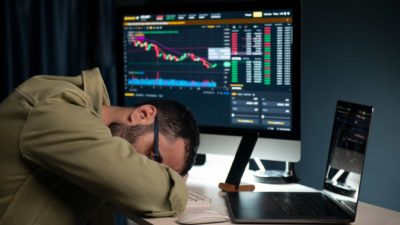This article was originally published on Fool.com. All figures quoted in US dollars unless otherwise stated.
Last May -- when Tesla Inc (NASDAQ: TSLA) shares were trading for around $150 on a split-adjusted basis -- CEO Elon Musk opined on Twitter that Tesla's stock price was probably too high.
Tesla stock price is too high imo
— Elon Musk (@elonmusk) May 1, 2020
As Tesla stock continued to rise during the remainder of 2020 and sustained its massive gains, Musk began to change his tune. By the time Tesla held its fourth-quarter earnings call last week, the stock had more than quintupled from the level that Musk had considered "too high" less than a year ago. Nevertheless, the Tesla CEO laid out a case for why the impending arrival of full self-driving technology would justify the company's lofty valuation.
There's just one problem: Musk's entire argument is built upon a fallacy. Let's take a look.
Elon Musk math
Last year, Tesla's automotive revenue reached a record $27.2 billion, and the company earned a GAAP operating profit of $2 billion. Tesla expects to grow dramatically from that base. It projects that it will increase its vehicle deliveries about 50% annually on average in the near term, as it increases its battery and assembly capacity, localizes production, and introduces new models.
Still, based on Tesla's Wednesday closing price of $864.16 and its diluted share count of 1.124 billion shares, the company had a fully diluted market capitalisation of nearly $1 trillion. Even if Tesla was able to grow its earnings tenfold, it wouldn't justify the company's recent valuation without aggressive expectations for continued growth.
During Tesla's recent earnings call, Musk opined that the stock remains reasonably valued if one factors in the profit potential of the full self-driving capabilities Tesla is building.
... [I]f Tesla's ships, let's say, hypothetically, $50 billion or $60 billion worth of vehicles, and those vehicles become full self-driving and can be used ... as robotaxis, the utility increases from an average of 12 hours a week to potentially an average of 60 hours a week. ... [L]et's just assume that the car becomes twice as useful ... that would be a doubling again of the revenue of the company, which is almost entirely gross margin. ... [I]t would be like ... having $50 billion of incremental profit basically from that because it's just software.
In short, Musk argues that FSD capability will make each car Tesla builds dramatically more valuable, because it can be used more than a personal vehicle. Musk believes that Tesla will capture that extra value as almost pure profit, driving a massive earnings inflection that would enable the company to earn tens of billions of dollars annually within a few years -- with plenty of room to keep growing.
It's a giant fallacy
Alas, this "plan" is built on a fallacy. First, while typical car owners may spend just 12 hours per week in their vehicles, actual taxis get used far more often. In New York City, for example, some taxis are used for double shifts and may operate 100 hours per week (or even more). Those vehicles aren't more valuable just because they will be used more: Production costs determine the vehicle's selling price more than intended usage.
Second, Statista estimates that the global market for taxis and ride-hailing will reach $260 billion this year. That represents a sizable opportunity, but getting to $50 billion of revenue or more won't be easy. It will take time for robotaxis to disrupt the traditional ridesharing and taxi markets. And even when they do, Tesla will face lots of competition, as numerous other companies also hope to roll out robotaxi services.
Robotaxi services may earn higher margins than auto manufacturers in the long run. However, Musk's implicit assumption that Tesla could double its revenue with minimal incremental costs -- thus earning pre-tax margins of 50% or more -- is clearly false. If Tesla were to set its robotaxi rates high enough that it could earn such lofty margins, competitors would undercut it on price and steal its market share. This competitive dynamic will sharply limit the incremental profit opportunity from using Teslas as robotaxis.
Look to the core business for Tesla's value
Many Tesla bulls expect the company to become the largest automaker in the world within 10 or 15 years, delivering 10 million or more cars annually. If Tesla can pull that off while attaining double-digit automotive operating margins and building up lucrative side businesses in solar, batteries, and robotaxis, Tesla stock could certainly grow into its valuation over time.
However, investors shouldn't count on robotaxis as a magic bullet that will make Tesla massively profitable overnight. Tesla may develop a nice robotaxi business on the side, but the core auto business' growth will determine whether Tesla stock continues to soar or plunges back to earth in the decade ahead.
This article was originally published on Fool.com. All figures quoted in US dollars unless otherwise stated.









